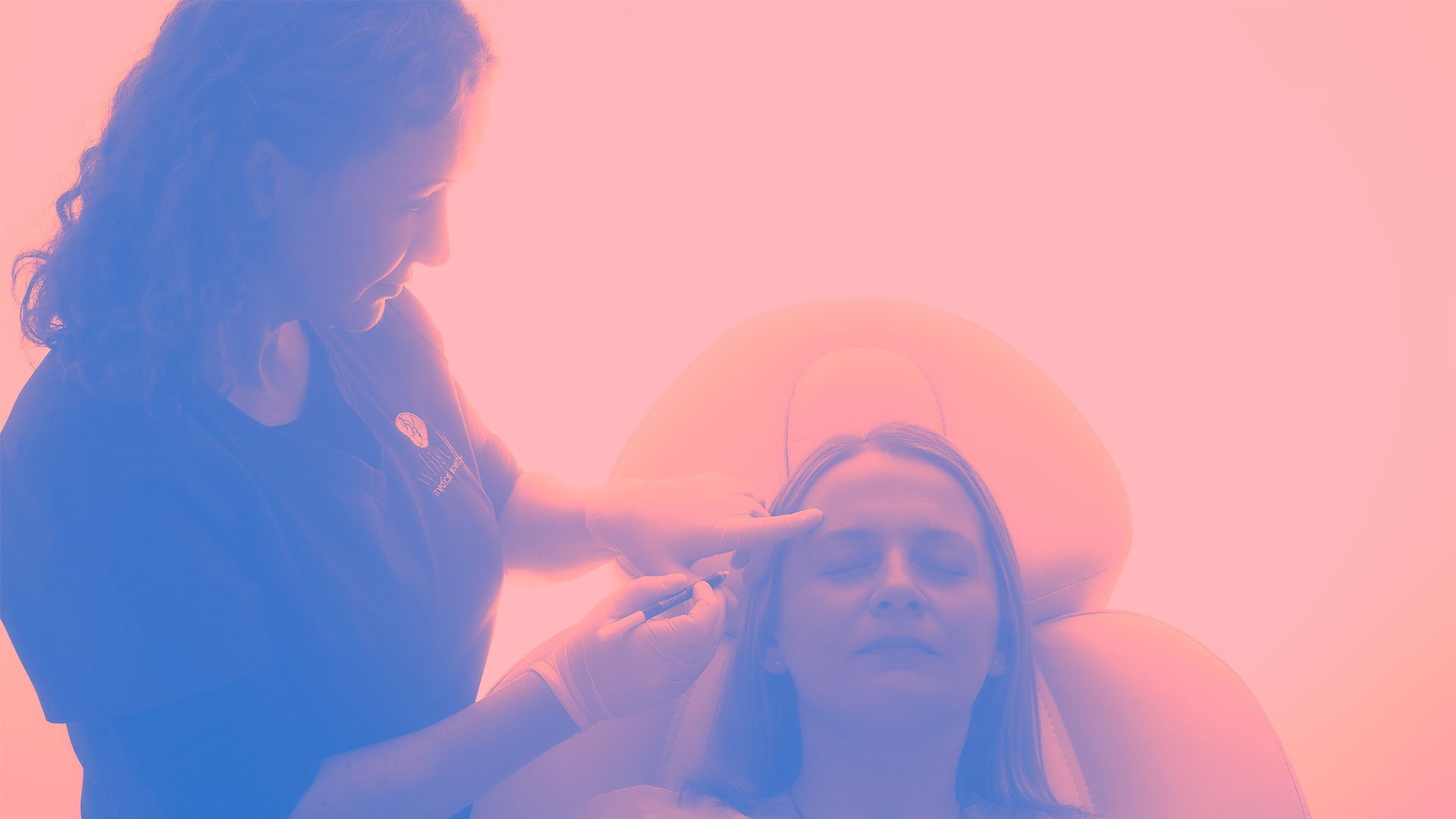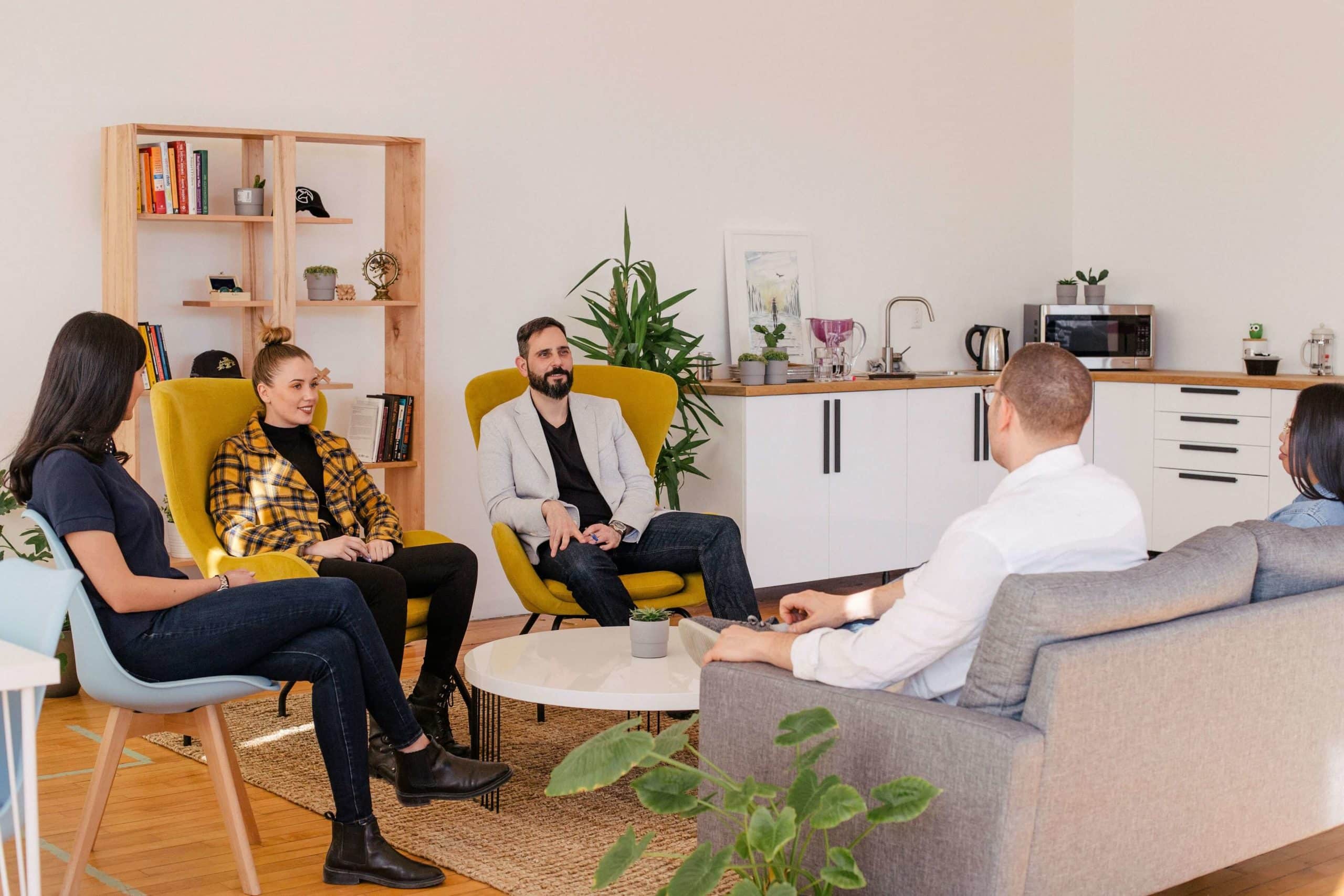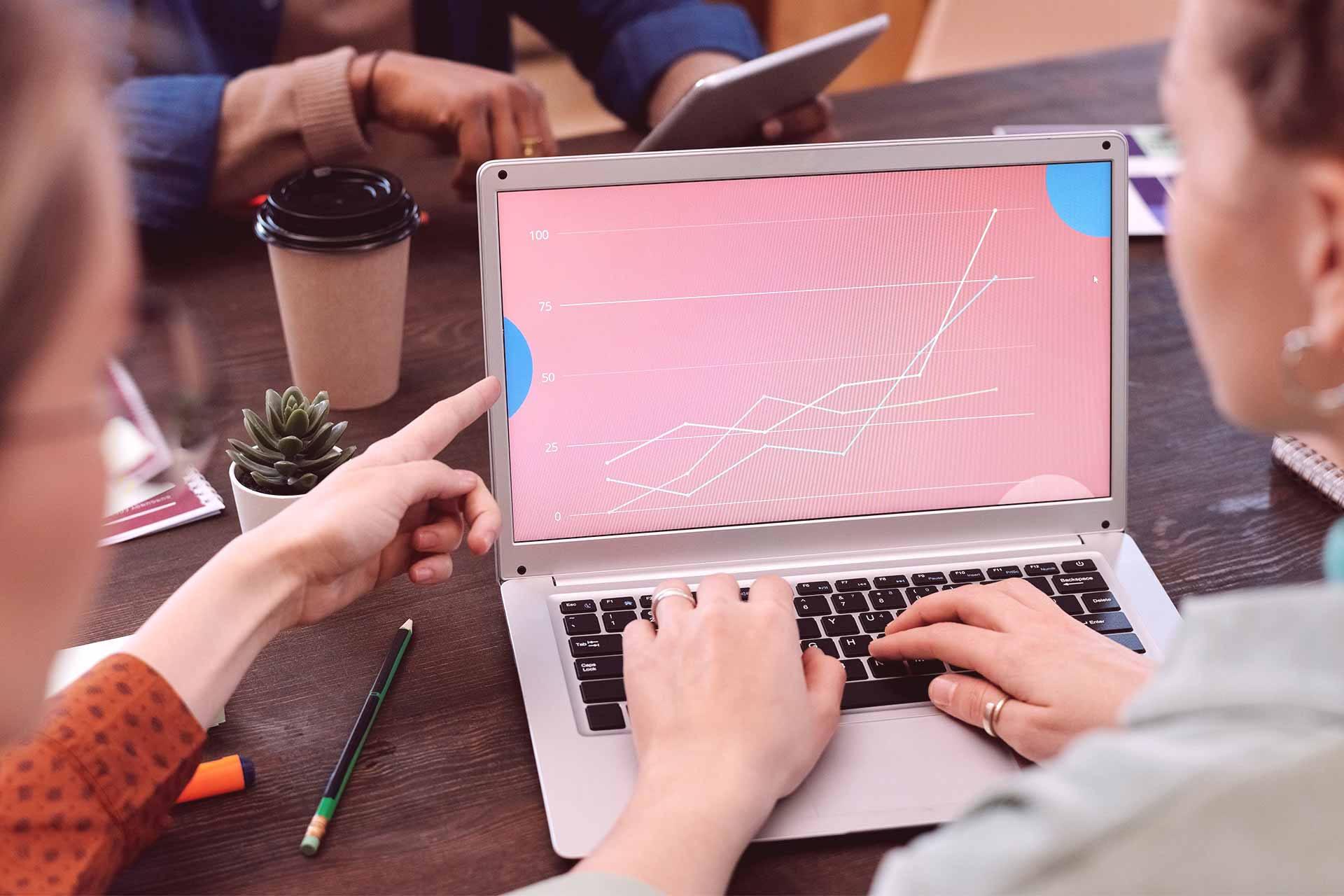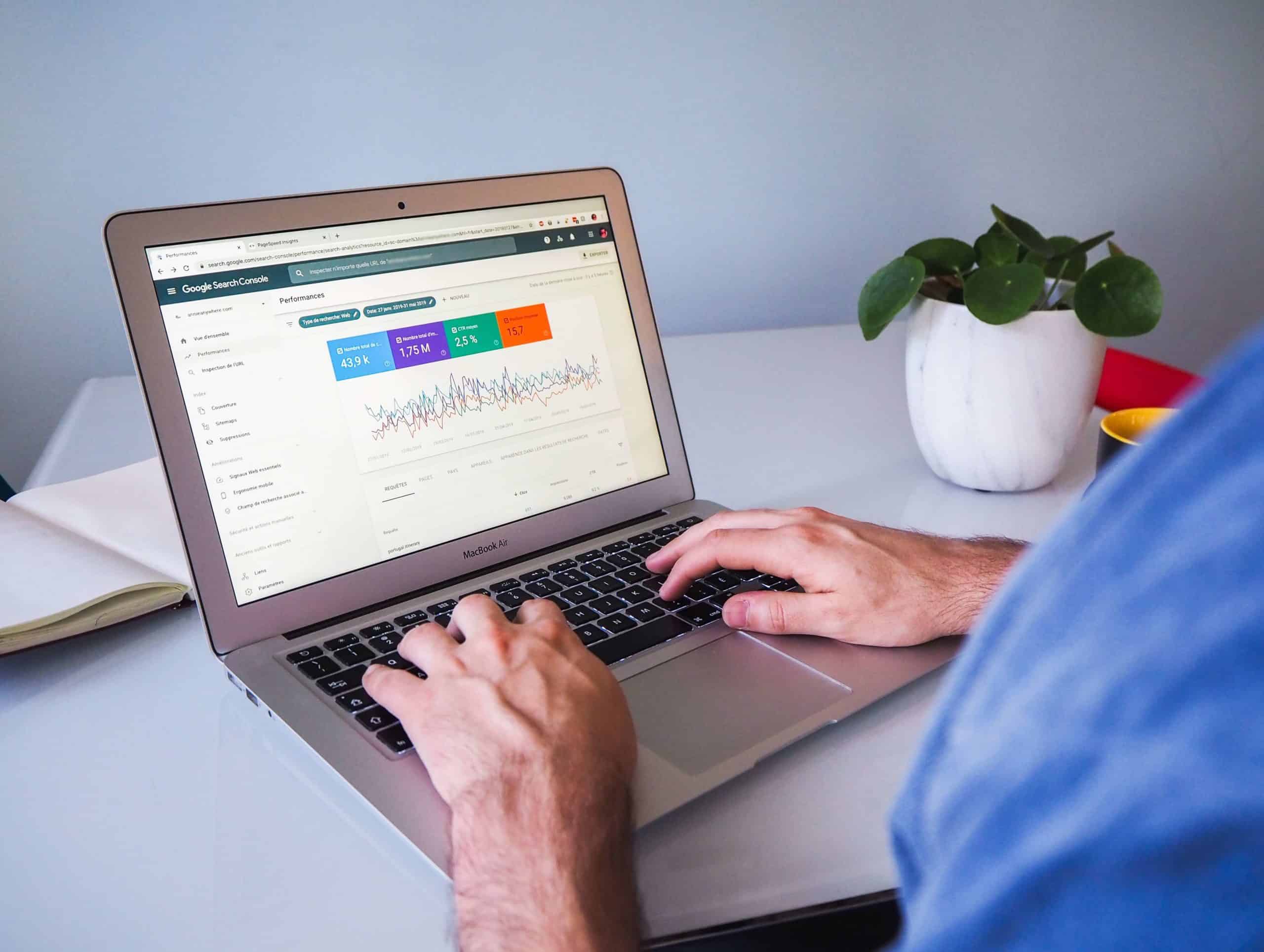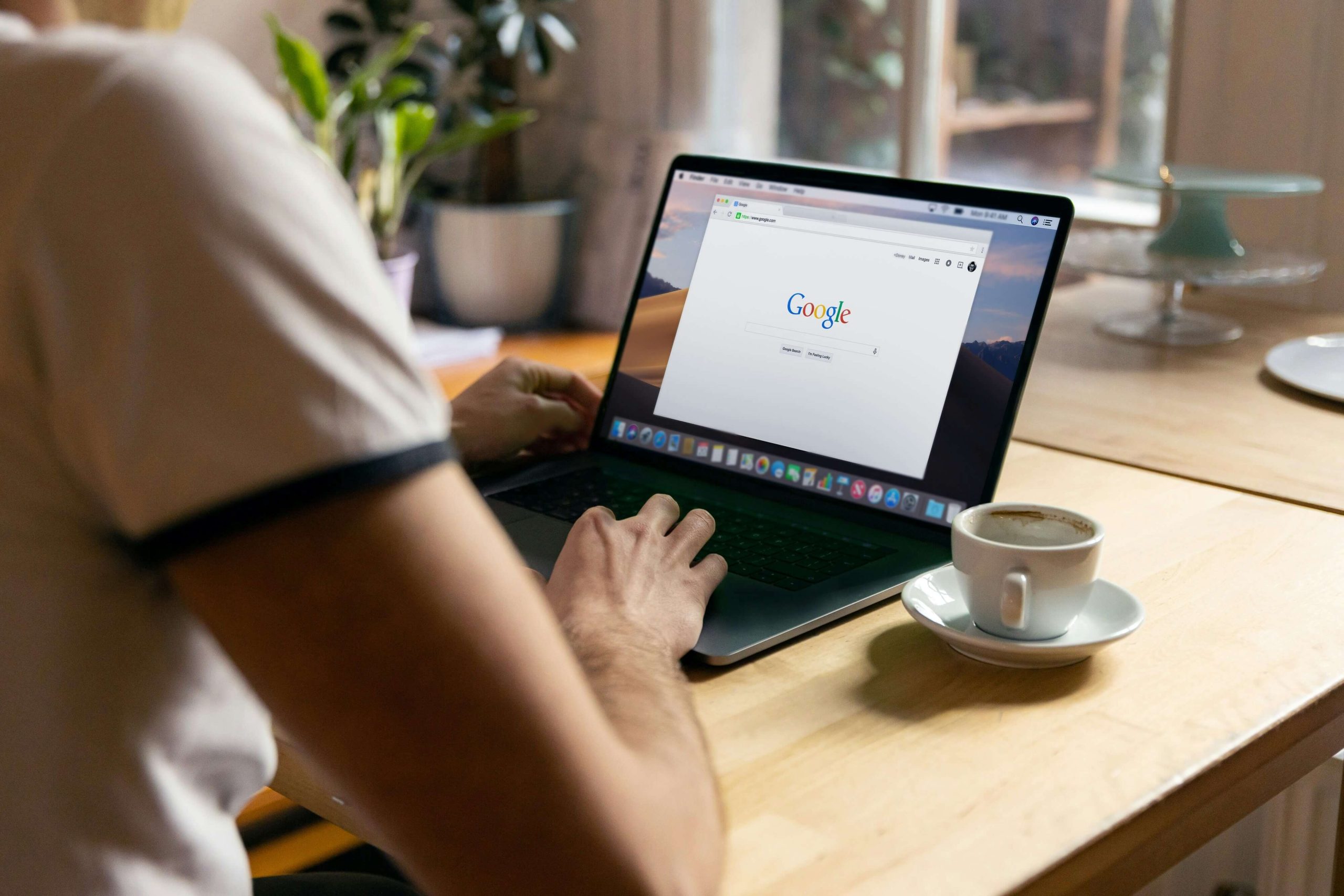Google Page Experience—what’s that? Ah, yes, there is another Google algorithm update.
What Does The Google Page Experience Update Mean?
Google will now consider the user experience on your web pages when they rank your website in the search results. They said:
You can think of it as if you’re adding a flavoring to a food you’re preparing. Rather than add the flavor all at once into the mix, we’ll be slowly adding it all over this time period.
Google reaffirms to the public that we shouldn’t expect any drastic changes to our websites. However, from now on, we should strive to create good page experiences to rank well!
When is the Google Page Experience Happening?
It will be rolling out in mid-June 2021. But it won’t be until the end of August for page experience to be 100% kick in.
What Will Google Evaluate for Page Experience?
- Accessibility
- Loading
- Security & Privacy
- User Annoyance
These key performance metrics incorporate the following:
- Core Web Vitals
- HTTPS
- Safe-Browsing
- Mobile-Friendliness
- No intrusive interstitials

Accessibility
Mobile-Friendliness
Ensure all web pages on your site to be easy to use and navigate on mobile devices. Factors to consider include content readability, link clickability, and on-page element accessibility.
Loading
Core Web Vitals
- Largest Contentful Paint (LCP): This metric measures loading performance. For a good user experience, aim to have the LCP occur within the first 2.5 seconds.
- First Input Delay (FID): This metric webpage inactivity. It’s best to keep the FID less than 100 milliseconds.
- Cumulative Layout Shift (CLS): this measures visual stability. It would be best if you aimed to have a CLS score of 0.1 or less.
Security & Privacy
HTTPS
You should serve your website over HTTPS, which means having a secure connection.
Safe-Browsing
- Malicious content like malware
- Deceptive content like social engineering for phishing purposes.
You can take a look at your website Security Issues on Google Search Console.
User Annoyance
No Intrusive Interstitials
Where Do I See My Google Page Experience Report?
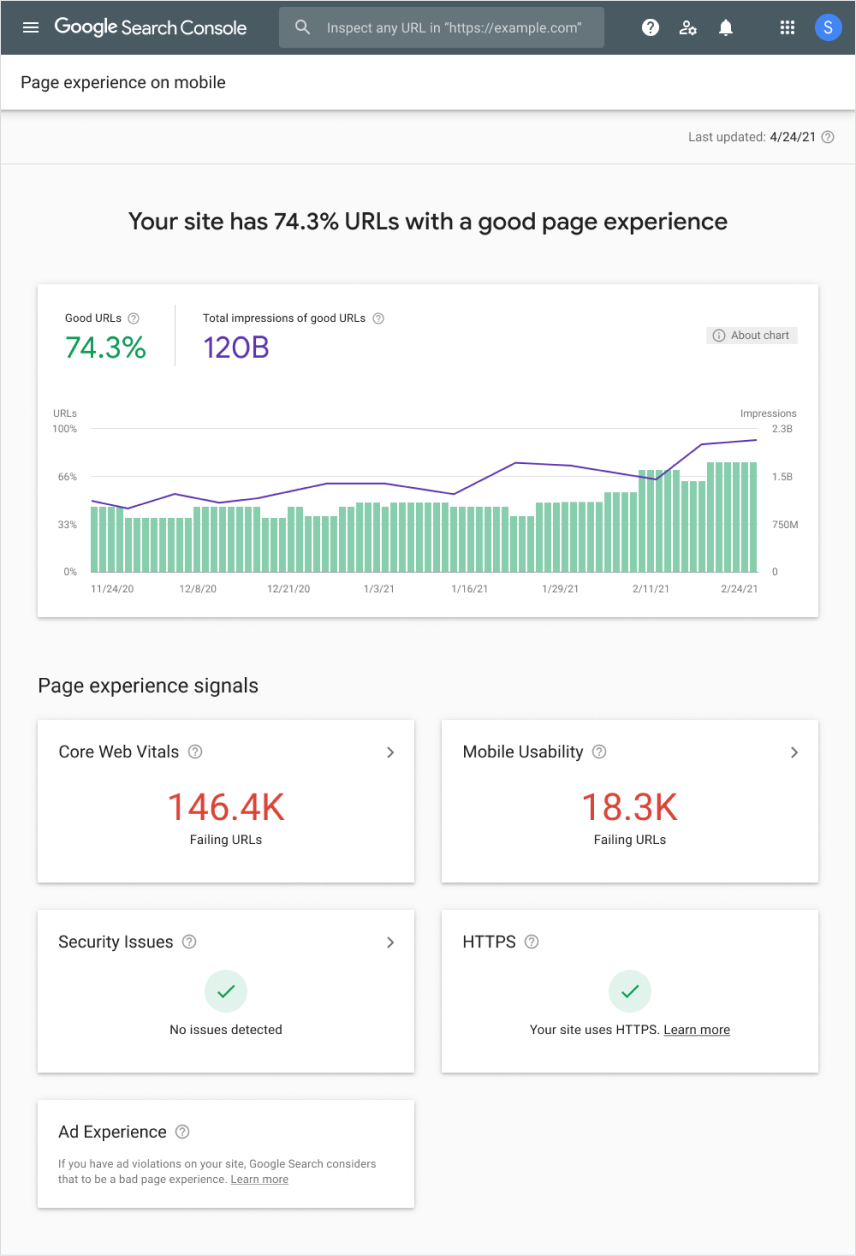
How Will the Google Page Experience Update Affect My Ads?
Google Search Ads value your Quality Score:
- Click-Through Rate
- Historical performance of your Google Ad account
- Quality and relevancy of your landing page, copy, keyword, etc.
As an advertiser, you’re already familiar with landing page optimization. Clear content that’s easy to read, engaging visual media—all laid out that’s navigatable. Apply this mindset to your entire website.
Although paid ads and organic results aren’t directly related, they work in sync in a digital marketing strategy.
For example, you run Paid Search Ads on Google. Your ads show up in the top ad results for “best craft beer in Oregon,” so people can find you easier.
Let’s say your website’s organic ranking is on the second page. If you work on your Page Experience optimizations, you could increase your page’s ranking and move up to the first page. That way, you’ll be establishing more presence on the first page of Google Search results!
PS. If you are an eCommerce brand, you should also run Google Shopping Ads. You will show up in 3 separate and optimal spots on Google search, maximizing more clicks to your website!
What is the Takeaway?
We should focus on creating a seamless user experience on our website for better Google search rankings. If you have time, take a look at Google Search Central’s presentation on “Preparing For Page Experience Ranking”:


